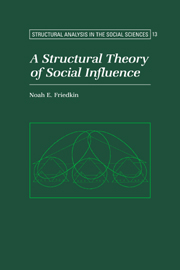Preface
Published online by Cambridge University Press: 23 December 2009
Summary
In this book I address a phenomenon that has been much studied in anthropology, sociology, and administrative science – the social structural foundations of coordinated activity and consensus in complexly differentiated communities and organizations. Such foundations are important because social differentiation makes coordination and agreement especially hard to achieve and maintain; Laumann and Knoke (1986) describe the problem in this way:
The structural differentiation of large-scale complex social systems has two fundamental implications for the integrative problems that such systems confront. First, structural differentiation is the basis of the objective differentiation of interests – i.e., claims for scarce goods, services, and facilities that component actors make on the larger social system, and for the differentiation of means (or relative power) by which they assert these claims with greater or lesser effect. Second, structural differentiation is also likely to lead to the differentiation of evaluative standards (values) that are used by various system elements to specify and establish the priorities among competing ends or goals that the system as a whole should collectively seek to achieve.
Emile Durkheim's (1933) treatise, The Division of Labor in Society, is the point of departure for this field of work. Durkheim's insight was that social differentiation does not necessarily lead to discordant activities and opinions, that there are different forms of social differentiation, and that one of the possible forms of social differentiation entails an integrative social structure – an organic solidarity – in which interpersonal discord is limited.
- Type
- Chapter
- Information
- A Structural Theory of Social Influence , pp. xv - xxPublisher: Cambridge University PressPrint publication year: 1998

